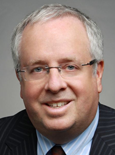
By: Michael Volkov
 This article was republished with permission from Michael Volkov’s blog, Corruption, Crime & Compliance.
This article was republished with permission from Michael Volkov’s blog, Corruption, Crime & Compliance.
With the rise of the compliance professional, there is a real need for strong support as they design and implement new and innovative compliance programs.
Compliance professionals are stretched thin – they have a mountain of responsibilities but only an anthill of resources to commit to the job. They are constantly putting out fires, prioritizing tasks and allocating scarce resources or urging other parts of the company to promote or assist the compliance function.
Professional associations, lawyers, consultants, vendors/suppliers and other support persons have a duty to the compliance professional. They need to take a different approach – one that is more focused on real-life solutions to real-life problems.
I have to start with another one of my life lessons – the ability to empathize and see issues from another person’s perspective. Compliance practitioners do not need theoretical solutions or long-winded explanations of why this approach works or another does not work.
Instead, compliance professionals need support with practical solutions to real problems. In some cases, compliance support professionals can help to define a strategy to solve a problem. Sometimes the same strategy or a similar one worked for another compliance professional in another company.
Compliance professionals also do not need lengthy recitations on the history of a particular law, unless that history is immediately relevant to the current situation. All too often, lawyers who support compliance professionals fill their emails and telephone calls with long-winded legal explanations that have little to no relevance to the compliance professional who is trying to solve a problem.
In many cases, compliance professionals need a bottom line on what needs to be done and an adequate discussion of why the action needs to be taken. A Big Lebowski solution focusing on the “ins and outs” of an issue can be inefficient and a waste of time for a compliance professional.
Benchmarking among compliance professionals is an important source of information and assistance for problem solving. No two companies are exactly alike, but there are lessons to be learned from benchmarking similarly sized companies or regulated companies.
Compliance professionals are very collegial and willing to help each other out. They often share information, drafts and policies/procedures among themselves. They also consult with each other on occasion.
CCOs work by themselves or with small groups. They often have a small staff. They have fewer opportunities to develop solutions through staff discussions. Often, they arrive at solutions by working closely with legal staff and their clients – the business managers.
In the end, compliance professionals need less theoretical mumbo jumbo and more practical, real-world solutions. As a theoretical matter, it may be great to conduct due diligence of all suppliers/vendors who have annual revenues exceeding $50,000, but a compliance professional may not have the resources to conduct such a review and may be left with a strategy that focuses on the top 10 or top 20 vendors/suppliers based on geographic areas of operation.
The compliance industry should start to focus more on these kinds of issues. It is time to give compliance professionals the support they need and the support they deserve.
 Michael Volkov is the CEO of The Volkov Law Group LLC, where he provides compliance, internal investigation and white collar defense services. He can be reached at mvolkov@volkovlaw.com. His practice focuses on white collar defense, corporate compliance, internal investigations, and regulatory enforcement matters. He is a former federal prosecutor with almost 30 years of experience in a variety of government positions and private practice.
Michael Volkov is the CEO of The Volkov Law Group LLC, where he provides compliance, internal investigation and white collar defense services. He can be reached at mvolkov@volkovlaw.com. His practice focuses on white collar defense, corporate compliance, internal investigations, and regulatory enforcement matters. He is a former federal prosecutor with almost 30 years of experience in a variety of government positions and private practice.
Michael maintains a well-known blog: Corruption Crime & Compliance which is frequently cited by anti-corruption professionals and professionals in the compliance industry.Michael has extensive experience representing clients on matters involving the Foreign Corrupt Practices Act, the UK Bribery Act, money laundering, Office of Foreign Asset Control (OFAC), export controls, sanctions and International Traffic in Arms, False Claims Act, Congressional investigations, online gambling and regulatory enforcement issues.
Michael has assisted clients with design and implementation of compliance programs to reduce risk and respond to global and US enforcement programs.
Michael has built a strong reputation for his practical and comprehensive compliance strategies.Michael served for more than 17 years as a federal prosecutor in the U.S. Attorney’s Office in the District of Columbia; for 5 years as the Chief Crime and Terrorism Counsel for the Senate Judiciary Committee, and Chief Crime, Terrorism and Homeland Security Counsel for the Senate and House Judiciary Committees; and as a Trial Attorney in the Antitrust Division of the U.S. Department of Justice.
Michael also has extensive trial experience and has been lead attorney in more than 75 jury trials, including some lasting more than six months. His clients have included corporations, officers, directors and professionals in, internal investigations and criminal and civil trials. He has handled a number of high-profile criminal cases involving a wide range of issues, including the FCPA and compliance matters, environmental crimes, and antitrust cartel investigations in countries all around the world.
Published by Conselium Executive Search, the global leader in compliance search.

